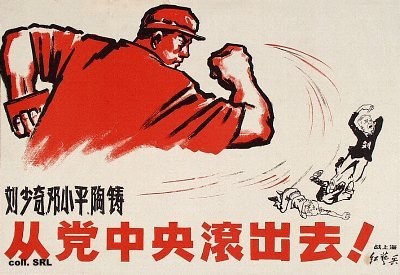
KOE: The Influence of the Chinese Revolution on the Communist Movement of Greece (2006)
[From the Communist Organization of Greece]
Our contribution can reach the point of formulating an opinion (open for debate) and sharing the experience of a small section of the world’s proletariat, that of the Greek communist movement.
The Greek communists and the Chinese Revolution
“Our countries have two things in common: our ancient civilization, and two fatal numbers: 6 and 7. You are on the 36th parallel and we are on the 37th. You have the 6th Fleet of the US Navy, we have the 7th”.
(From a speech of Chairman Mao on a meeting with the representatives of the Greek-Chinese League of Friendship in 1965.)
It is of interest to state the opinion given by a great Greek communist who pioneered in the antirevisionist struggle in Greece. It is that of Comrade Yiannis Hontzeas, who, in the note that follows, gives us a testimony of what the perception of Greek communists about the CPC was, and what their expectations were, before the open conflict with the Russian revisionists began:
When I. V. Stalin died, many communists in our country, the majority of the veteran EAM members [EAM – National Liberation Front] who remained faithful to the CPG’s [Communist Party of Greece, CPG or KKE] and the EAM’s traditions during difficult times, expected that Chairman Mao will be invited in Moscow in order to advise, to lead, to arrange the things. Regardless of what anyone may say today, Mao was then, after the death of Stalin, regarded as the leader of the world proletariat, the guide of the world communist movement. If that was a simplistic faith, this is an issue of different nature. Mao visited Moscow on two separate occasions: The first time in 1950 in order to sign the treaty with Stalin, and the second time in 1957 in order to attend the Conference of Communist Parties. After the events of that period, Mao’s name was transformed from legend to curse – to become a legend again in the ’60s and ’70s, wining the minds of both the youth and the working people, gaining even more glory after years of slander. But how did Mao and the Chinese Revolution become known in Greece? Continue reading “KOE: The Influence of the Chinese Revolution on the Communist Movement of Greece (2006)”








